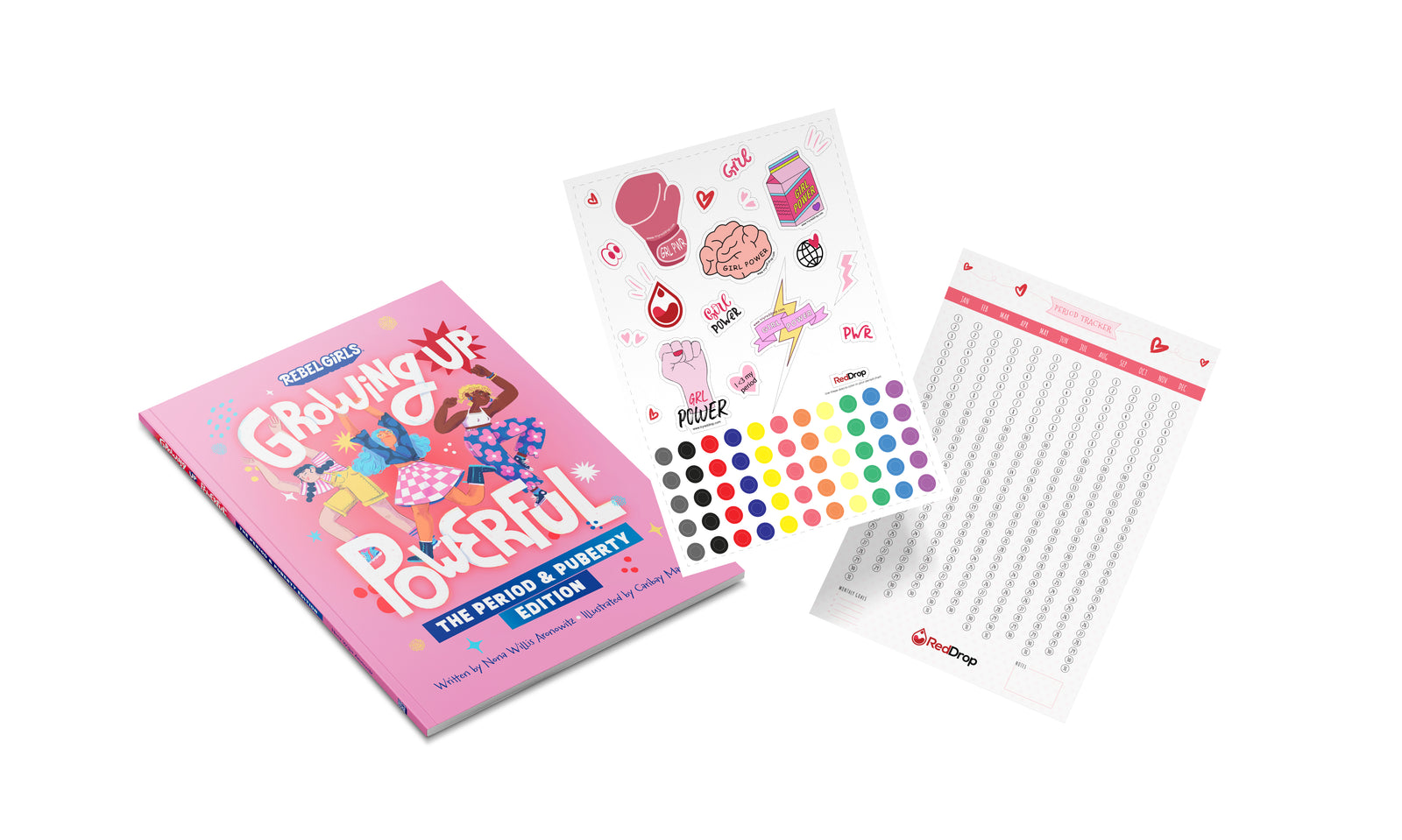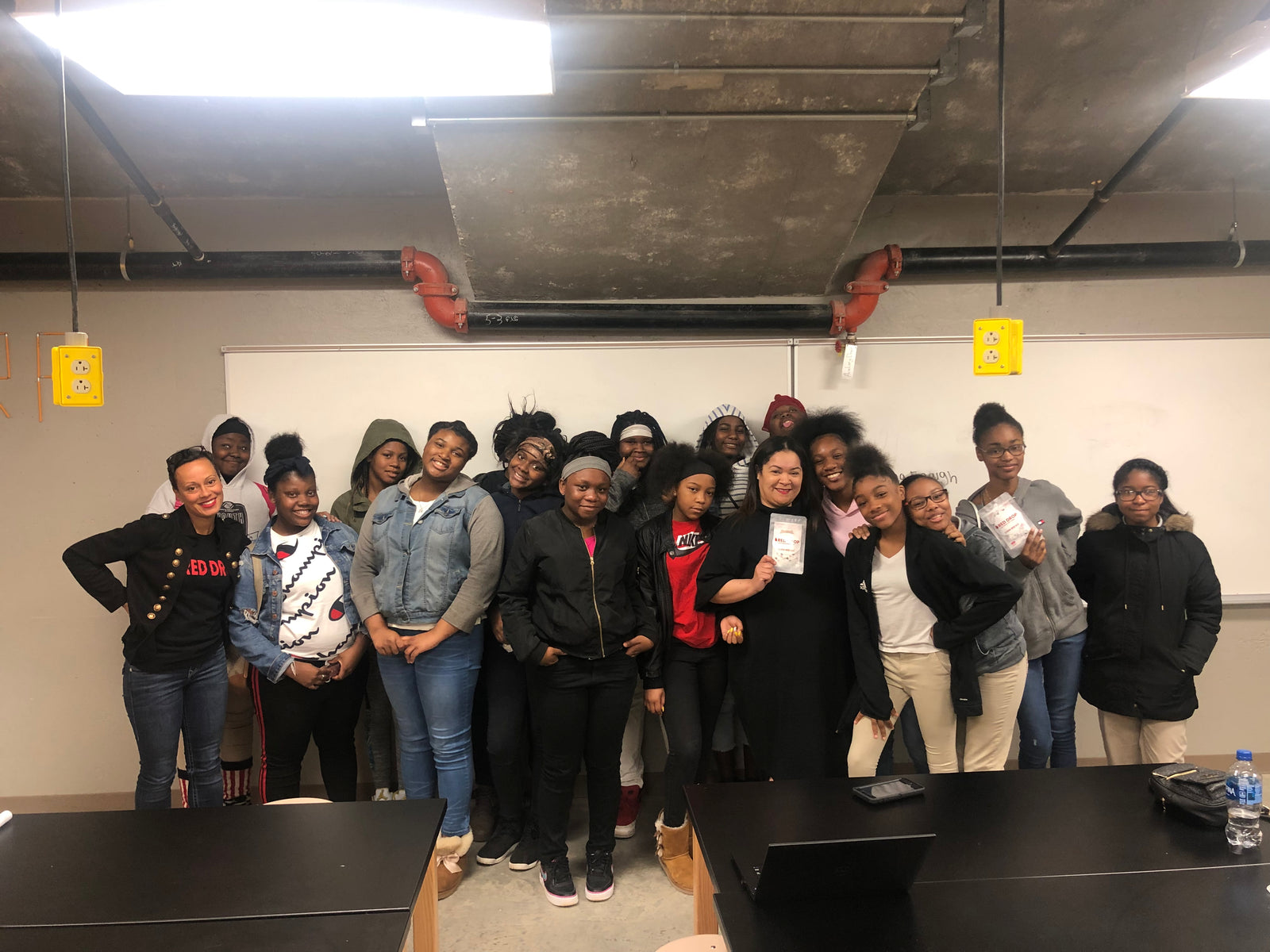In my last article, I shared the four phases of your cycle. Now that you understand the four phases of your cycle, let’s talk about how to USE this knowledge in your daily life. As a teen, you’re juggling school, friendships, family, activities, and probably a part-time job. The good news? When you sync these commitments with your natural rhythms, everything becomes easier and more enjoyable.
I’ve been cycle syncing for years, and I can honestly say it’s changed my life. Instead of wondering why some weeks feel impossible and others feel effortless, I now plan my schedule around my cycle. The result? Better grades, stronger friendships, and way less stress. Here’s how you can do the same.
Menstrual Phase (Days 1-5): Your Inner Winter
What’s Happening in Your Body
Your hormone levels are at their lowest, which means lower energy and a natural desire to rest and reflect. Your body is doing the important work of renewal, which requires energy you might typically use for other activities.
School & Academics
This isn’t the time to schedule big presentations or start major projects. Instead, use this phase for:
- Review and reflection work (going over notes, organizing study materials)
- Research and planning for future projects
- Quiet study sessions rather than group work
- Taking breaks between classes if possible
- Being gentler with yourself about perfectionism
If you have a big test during this phase, give yourself extra time to prepare and don’t expect to feel as sharp as you usually do. That’s not failure—that’s working with your body.
Social Life
During your inner winter, you naturally crave more intimate, low-key social interactions:
- Choose movie nights over big parties
- Prefer one-on-one hangouts with close friends
- Communicate your need for space without feeling guilty
- Say no to social events that feel overwhelming
- Focus on deepening existing friendships rather than making new ones
Self-Care Priorities
- Prioritize sleep (aim for 8-9 hours if possible)
- Choose comfort foods that nourish you
- Take warm baths with Epsom salts for cramping
- Journal or do other reflective activities
- Wear your most comfortable clothes
- Use heating pads and other comfort tools without shame
Follicular Phase (Days 1-13): Your Inner Spring
What’s Happening in Your Body
Estrogen starts rising, gradually increasing your energy and mood. You begin feeling more optimistic and open to new experiences. Your skin often starts clearing up, and you feel more like yourself again.
School & Academics
This is perfect timing for:
- Starting new projects or tackling challenging assignments
- Brainstorming and creative work
- Joining study groups or collaborative projects
- Trying new learning methods or study techniques
- Setting goals for the upcoming weeks
- Taking on leadership roles in group projects
Social Life
You’re starting to feel more social and open to connection:
- Plan coffee dates with acquaintances you want to know better
- Join new clubs or activities
- Attend social events that involve learning something new
- Reach out to friends you haven’t talked to in a while
- Be open to making new connections
- Try new activities with friends
Self-Care Priorities
- Gradually increase physical activity as energy returns
- Try new recipes or foods
- Start new skincare routines (your skin is more receptive)
- Experiment with new hobbies or interests
- Organize and clean your space for fresh energy
- Plan future goals and dreams
Ovulation Phase (Days 14-16): Your Inner Summer
What’s Happening in Your Body
This is your peak energy time! Estrogen is at its highest, which often means better mood, higher confidence, and that natural glow everyone talks about. You feel most like your confident, capable self.
School & Academics
Take advantage of your peak performance time:
- Schedule important presentations or tests if possible
- Participate actively in class discussions
- Take on challenging projects that require high energy
- Network with teachers about future opportunities
- Apply for scholarships, internships, or special programs
- Lead group projects or study sessions
Social Life
This is your most social phase, and embrace it:
- Plan bigger social events or parties
- Go to events where you’ll meet new people
- Have important conversations with friends or family
- Try activities that push you out of your comfort zone
- Be more outgoing and confident in social situations
- Take leadership roles in friend groups or activities
Self-Care Priorities
- Engage in higher-intensity workouts if you enjoy them
- Try new beauty or fashion experiments
- Schedule photo shoots or important events
- Plan date nights or romantic activities
- Take on physical challenges or adventures
- Enjoy being seen and social
Luteal Phase (Days 17-28): Your Inner Fall
What’s Happening in Your Body
Progesterone rises and estrogen drops, which can bring PMS symptoms, but also incredible focus and productivity. You might feel more introspective and less tolerant of drama, but you can also do deep, detailed work.
School & Academics
Channel this phase’s natural focus:
- Tackle detail-oriented assignments and editing work
- Create study schedules and organize materials
- Focus on completing projects rather than starting new ones
- Do thorough research and fact-checking
- Prepare for upcoming tests with intensive study sessions
- Clean up and organize your academic materials
Social Life
You naturally want smaller, more meaningful interactions:
- Prioritize your closest friendships
- Have deeper, more serious conversations
- Avoid drama and high-conflict situations
- Choose quality time over quantity of social events
- Communicate boundaries clearly and kindly
- Focus on one-on-one activities rather than group events
Self-Care Priorities
- Honor your need for more alone time
- Engage in comfort activities like reading or crafts
- Prepare nourishing meals and snacks
- Practice saying no to commitments that drain you
- Address any health or wellness issues that need attention
- Create cozy, comfortable environments
Practical Planning Tips
Use a Cycle Calendar
Mark your cycle phases on your regular calendar or planner. When scheduling activities weeks in advance, consider what phase you’ll be in and plan accordingly. We have a paper cycle planner here.
Communicate Your Needs
You don’t have to share details about your cycle, but you can communicate your energy levels. “I’m feeling pretty low-energy this week, can we reschedule our study session?” is perfectly acceptable.
Be Flexible
Your cycle might be irregular, especially as a teen. Use this as a guideline, not a rigid rule. Some months you might feel different from what you expected, and that’s okay.
Start Small
You don’t have to overhaul your entire schedule. Start by paying attention to patterns and making minor adjustments. Maybe you just choose different types of self-care based on your phase, or schedule your most important events during ovulation.
Include Your Support System
If you’re comfortable, share this information with close friends or family members. They can help support your needs during different phases.
What About Irregular Cycles?
If your cycle is still irregular (which is completely normal for teens), focus more on how you feel than on specific timing. Notice your energy and mood patterns, even if they don’t follow a perfect 28-day cycle.
Working With School Schedules
You can’t control when tests and assignments are due, but you can control how you prepare for them and how you support yourself during different phases. The goal isn’t to avoid all challenges during certain stages, but to give yourself extra support when you need it.
Remember: This Is a Tool, Not a Rule
Cycle syncing should make your life easier, not more complicated. If tracking feels stressful or you find yourself being too rigid about it, step back and focus on general awareness instead of detailed planning.
The most important thing is developing a relationship with your body that’s based on listening, respect, and compassion. Your cycle is unique to you, and learning to work with it is a skill that will serve you throughout your entire life.
At RedDrop, we believe that understanding and honoring your body’s natural rhythms allows you to be your best self in every phase. Your cycle isn’t something to overcome—it’s wisdom to embrace.
Start paying attention, be gentle with yourself, and trust your body’s intelligence. You might be surprised by how much easier life becomes when you stop fighting your natural rhythms and start flowing with them instead.
Photo Credit: Unsplash
Sterling P. Jones is a wellness writer and beauty expert who believes in empowering women through education. As the founder of The Beauté Study, she teaches women how beauty and wellness practices can be tools of personal power. Sterling specializes in cycle-conscious living and writes about the intersection of beauty, wellness, and feminine health. Her approach to period education combines cultural insight with practical guidance, helping young women understand their bodies as sources of strength rather than shame.














































